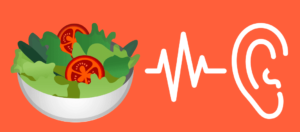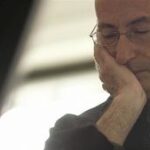There is a Connection Between Your Diet and Your Ears
Listen Up! What You Eat Can Protect Your Hearing
There is a connection between your diet and your ears
By Hallie Levine
September 14, 2020:
“I tell all my patients with hearing loss to follow a heart-healthy diet,” Dr. Woodson says. “If it’s good for your heart, it’s going to be good for your ears, as well.”
Heart-healthy eating patterns, including the three approaches used in Curhan’s studies, are mostly centered on lots of high-quality plant-based foods and low amounts of animal-based foods, refined grains, added sugars, and unhealthy fats. To make it easy, Curhan recommends at each meal filling half your plate with fruits and veggies (but limiting starchy ones, like potatoes). The other half should be made up of whole grains and plant-based protein, such as tofu, lentils, or nuts most days, with fish and modest amounts of lean meat, and poultry less often. Unsaturated oils such as olive or vegetable oils can also be used.”
Follow this link for the full report:




